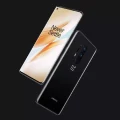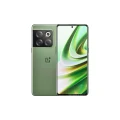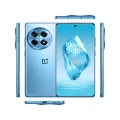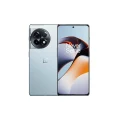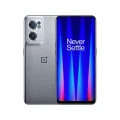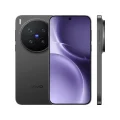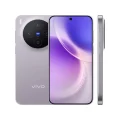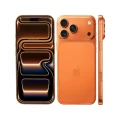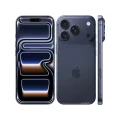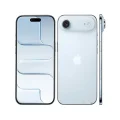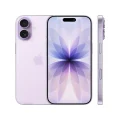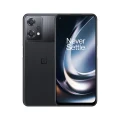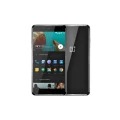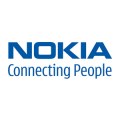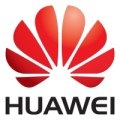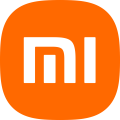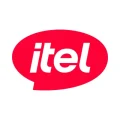- Home
- All Products
- OnePlus
- OnePlus 6
OnePlus 6
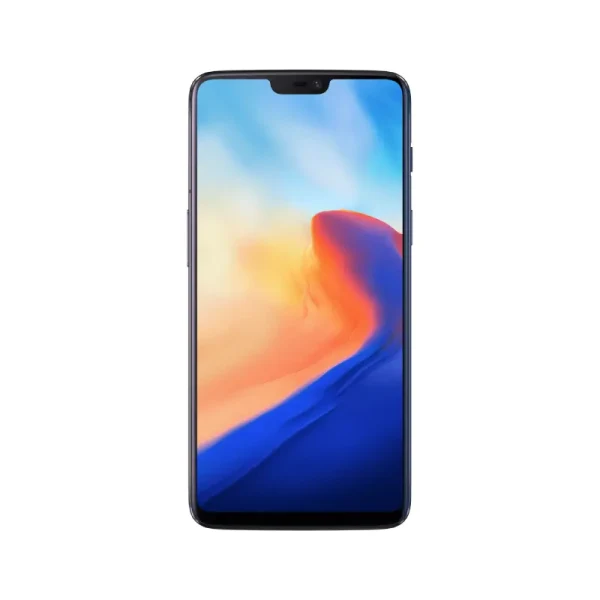

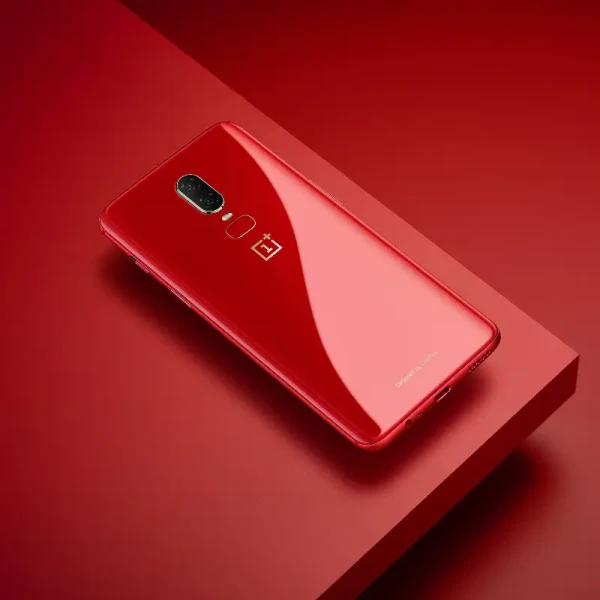
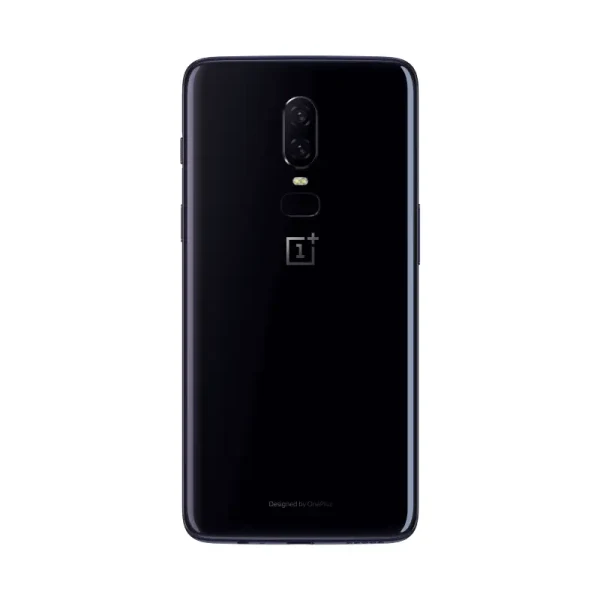
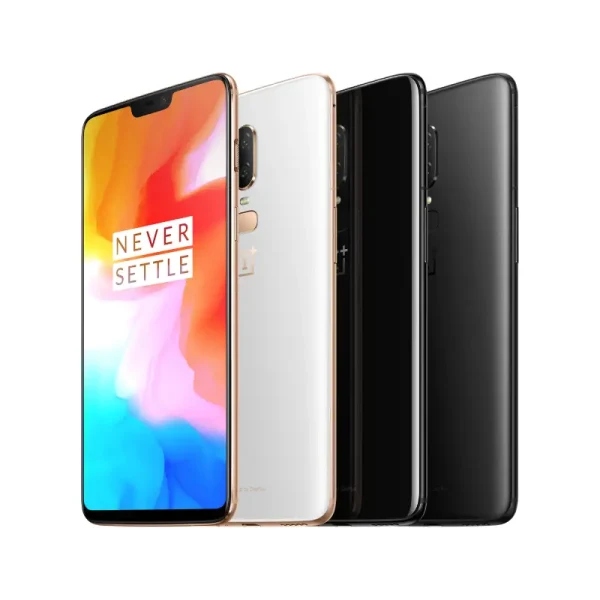
-
Battery: Li-Po 3300 mAh
-
RAM: 6GB, 8GB, 8GB
-
Storage: 64GB, 128GB, 256GB
-
Display: Optic AMOLED, 6.28 inches
-
Camera: Rear 16 MP+20 MP, and Front 16 MP
-
OS: Android 8.1 (Oreo), upgradable to Android 11, OxygenOS 11.1.1.1
Full Specifications
Price
| Official | 44990 BDT 8GB/128GB, 69999 BDT 8GB/256GB |
General
| Model | OnePlus 6 |
| Announced | 2018, May 16 |
| Released | 2018, May 17 |
| Status | Available |
Design
| Dimensions | 155.7 x 75.4 x 7.8 mm (6.13 x 2.97 x 0.31 in) |
| Weight | 177 g (6.24 oz) |
| SIM SIM (Subscriber Identity Module) is a small card that contains mobile network subscriber's account information. This allows the phone using the card to attach to a mobile network. The SIM card is most commonly associated with GSM and UMTS mobile networks. Moving a SIM card from one phone to another allows a subscriber to switch mobile phones without having to contact their mobile network carrier. SIM cards can also be used by a phone to store limited amounts of data, such as phone numbers and text messages. |
Dual SIM (Nano-SIM, dual stand-by) Water-repellent coating |
| Colors |
Midnight Black, Mirror Black, Silk White, Amber Red |
Display Specification
| Display Type Display Technology => A number of display technologies and types used in mobile phones => TFT (Thin Film Transistor), IPS (In-Place Switching), OLED (Organic Light Emitting Diode), AMOLED (Active-Matrix Organic Light-Emitting Diode), Super AMOLED (an even advanced version of AMOLED), Resistive Touchscreen (Resistive touchscreens contain two layer of conductive material with a very small gap between them which acts as a resistance), Capacitive Touchsceen (Capacitive touchscreen technology consists of a layer of glass coated with a transparent conductor) | Optic AMOLED |
| Size | 6.28 inches, 98.4 cm2 |
| Resolution | 1080 x 2280 pixels, 19:9 ratio |
| Pixel Density Pixel Density (PPI) is refers to the concentration of pixels on a particular display, measured in pixels per inch (ppi). Pixel density is calculated by dividing the diagonal pixel resolution of a display by its diagonal size, higher pixel density better display quality. | 402 ppi density |
| Display Protection Display Protection => Gorilla Glass is a special alkali-aluminosilicate glass shield with exceptional damage resistance that helps protect mobile displays from scratches, drops, and bumps of everyday use, It is always better to go for a smartphone with Gorilla Glass for that added protection and peace of mind. | Corning Gorilla Glass 5 |
| Features | 83.8% screen-to-body ratio |
Platform
| Operating System OS => Every computer system run on a base software called Operating System (OS). Operating System controls all basic operations of the computer (such as smartphone, PDAs, tablet computers and other handheld devices). The Operating System allows the user to install and run third party applications (apps), apps are used to add new functionality to the device. | Android 8.1 (Oreo), upgradable to Android 11, OxygenOS 11.1.1.1 |
| Chipset Chipset is a group of integrated circuits designed to perform one or a more dedicated functions, often with real time computing constraints, Popular smartphones are equipped with more advanced embedded chipsets that can do many different tasks depending on their programming. | Qualcomm SDM845 Snapdragon 845 (10 nm) |
| CPU CPU (Central Processing Unit) mostly known as processors, CPU processes instructions in order to carry out certain functions that make your device operate properly. Processors are often described as the brain of computers, smartphones and tablets, Smartphones and tablets rely on processors to carry out their every task, Processors are an incredibly important factor in selecting any type of computing device, including your smartphone. | Octa-core (4x2.8 GHz Kryo 385 Gold & 4x1.7 GHz Kryo 385 Silver) |
| GPU GPU (Graphics Processing Unit) is a single-chip processor designed to rapidly manipulate and alter memory to accelerate the creation of images in a frame buffer intended for output to a display, This includes things such as lighting effects, object transformations, and 3D motion. | Adreno 630 |
Main Camera
| Camera Setup | Dual |
| Resolution |
16 MP, f/1.7, 25mm (wide), 1/2.6", 1.22µm, PDAF, OIS 20 MP (16 MP effective), f/1.7, 25mm (wide), 1/2.8", 1.0µm, PDAF |
| Features |
Dual-LED flash, HDR, panorama |
| Video | 4K@30/60fps, 1080p@30/60/240fps, 720p@480fps, Auto HDR |
Selfie Camera
| Camera Setup | Single |
| Resolution |
16 MP, f/2.0, 25mm (wide), 1/3.06", 1.0µm |
| Video | 1080p@30fps |
| Features |
Auto-HDR, gyro-EIS |
Network & Connectivity
| Technology | GSM / CDMA / HSPA / LTE |
| Speed | HSPA 42.2/5.76 Mbps, LTE-A (4CA) Cat16 1024/150 Mbps |
| Wi-fi Wi-Fi is a popular wireless networking technology using radio waves to provide high-speed network connections that allows devices to communicate without cords or cables, Wi-Fi is increasingly becoming the preferred mode of internet connectivity all over the world. | Wi-Fi 802.11 a/b/g/n/ac, dual-band, Wi-Fi Direct, DLNA |
| Bluetooth Bluetooth is a wireless communications technology for exchanging data between mobile phones, headsets, computers and other network devices over short distances without wires, Bluetooth technology was primarily designed to support simple wireless networking of personal consumer devices. | 5.0, A2DP, LE, aptX HD |
| NFC NFC (Near field communication) is a set of standards for smartphones and similar devices to establish peer-to-peer radio communications with each other by touching them together or bringing them into proximity, usually no more than a few inches. | Yes |
| Positioning |
GPS, GLONASS, BDS, GALILEO |
| FM Radio | No |
| USB | USB Type-C 2.0 |
| 2G Network |
GSM 850 / 900 / 1800 / 1900 - SIM 1 & SIM 2 CDMA 800 / 1900 & TD-SCDMA |
| 3G Network |
HSDPA 800 / 850 / 900 / 1700(AWS) / 1900 / 2100 |
| 4G Network |
1, 2, 3, 4, 5, 7, 8, 12, 17, 18, 19, 20, 25, 26, 28, 29, 30, 32, 34, 38, 39, 40, 41, 66, 71 - Europe, North America 1, 2, 3, 4, 5, 7, 8, 12, 17, 18, 19, 20, 25, 26, 28, 29, 34, 38, 39, 40, 41, 66 - India, Asia, China |
Battery
| Battery Type Battery Type => Cell phones run on various kinds of batteries depending on the manufacturer, phone size or shape and features. There are basically four types of cell phone batteries => Lithium Polymer, Lithium Ion, Nickel Metal Hydride and Nickel Cadmium. | Li-Poly (Lithium Polymer) |
| Capacity Battery Capacity is a measure (typically in Amp-hr) of the charge stored by the battery, and is determined by the mass of active material contained in the battery. The battery capacity represents the maximum amount of energy that can be extracted from the battery under certain conditions. | 3300 mAh |
| Removable | No |
| Charging |
20W wired |
| Wireless Charging Wireless Charging (Inductive Charging) uses an electromagnetic field to transfer energy between two objects. This is usually done with a charging station. Energy is sent through an inductive coupling to an electrical device, which can then use that energy to charge batteries or run the device. | No |
Multimedia
| Loudspeaker | Yes |
| Audio Jack | Yes |
| Audio Features |
Dirac HD sound |
Storage
| Card Slot Memory Card Slot is a special slot for inserting a memory card. Memory cards allow you to expand the phone's built-in memory, A memory card (sometimes called a flash memory card or a storage card) is a small storage medium used to store data such as text, pictures, audio, and video, for use on small, portable or remote computing devices such as mobile phones, mp3 players, digital cameras. | No |
| Internal Storage Internal Storage is a data storage space (flash memory) mostly used in smartphones, tablets and other electronic devices where operating system, apps, music, photos, videos, files and other user data Is stored. |
64GB 6GB RAM, 128GB 8GB RAM, 256GB 8GB RAM UFS 2.1 |
Sensors
| Fingerprint | Yes (rear-mounted) |
| Other Sensors | accelerometer, gyro, proximity, compass |
About the OnePlus 6
Launched in May 2018, the OnePlus 6 marked a significant leap forward in design and performance for the brand. It sports a large 6.28-inch Optic AMOLED display with a trendy notch and vibrant DCI-P3 color coverage at Full HD+ resolution (2280×1080, ~402 ppi). Under the hood is Qualcomm’s Snapdragon 845 chipset, paired with 6 GB or 8 GB RAM and 64 GB to 256 GB of UFS 2.1 storage—ensuring smooth multitasking and storage performance. Its dual rear cameras combine a 16 MP Sony IMX519 (OIS + EIS) and a 20 MP Sony IMX376K for portrait effects and 4K video at 60fps. OnePlus equipped a 3,300 mAh battery with Dash Charge fast charging, providing impressive endurance and rapid charging capabilities. The phone features a glass back and an aluminum frame for a premium feel, retains the beloved headphone jack and Alert Slider, and runs OxygenOS atop Android 8.1 (officially upgradable to Android 10 and beyond via community ROMs).
Main Key Features
- Display: 6.28″ Optic AMOLED, 2280×1080 FHD+, 19:9 notch, vibrant DCI-P3.
- Processor: Qualcomm Snapdragon 845 with Adreno 630 GPU.
- RAM & Storage: 6/8 GB RAM, 64/128/256 GB UFS 2.1.
- Cameras: Rear 16 MP (OIS + EIS) + 20 MP for portrait; Front 16 MP
- Battery & Charging: 3,300 mAh with Dash Charge fast charging.
- Design & Build: Glass front/back with aluminum frame; headphone jack; Alert Slider; no IP rating.
- Software: OxygenOS on Android 8.1, upgradeable to Android 10 officially.
- Connectivity & Extras: Dual SIM, NFC, Bluetooth 5.0, rear fingerprint sensor.
Pros & Cons
Pros:
- Exceptional flagship performance at a lower price point
- Bright, gorgeous display with modern notch design
- Fast and efficient Dash Charge; solid battery life
- Sleek glass design with valued features like headphone jack and Alert Slider.
- Clean, fast OxygenOS experience with timely updates
Cons:
- No wireless charging despite glass build
- Lacks IP-rated waterproofing, only basic water resistance
- Camera performance is solid, but low-light and portrait modes underperform compared to rivals
- Storage is non-expandable—no microSD slot
- Single bottom speaker, no stereo sound
Why Choose This Phone?
Choose the OnePlus 6 if you’re seeking flagship-tier power and style on a budget. It delivers blazing performance via the Snapdragon 845, a vibrant and modern display, fast-charging convenience, and a refined UI—at a price point that challenges mainstream flagships like the Galaxy S9 and iPhone X. For markets like Bangladesh, grey-market pricing (₹32,000–₹45,000 BDT) still offers massive value compared to current high-end phones.
Opinion
The OnePlus 6 is arguably one of the most balanced and ‘bang-for-your-buck’ phones of its era. It matured OnePlus’s design philosophy with a glass body and notch display, while retaining beloved features like headphone jack and Alert Slider. If you prioritize raw speed, clean software, and value, it’s still a compelling choice—even in 2025—for daily tasks, media consumption, and gaming. Just temper expectations around advanced camera features, waterproofing, and wireless charging.
See Another Model:
FAQs about OnePlus 6
Q. Does the OnePlus 6 support wireless charging?
A: No, despite its glass back, it lacks wireless charging support.
Q. Is it water-resistant?
A: It has some resistance to splashes but is not IP-rated—avoid submersion.
Q. Can storage be expanded with microSD?
A: No, it doesn’t have a microSD slot.
Q. What Android version does it run?
A: Ships with Android 8.1 (OxygenOS), officially upgradeable to Android 10; unofficial ROMs support up to Android 15
Q. What charging tech does it use, and how fast is it?
A: It uses OnePlus’s Dash Charge—charging up to ~50% in around 30 minutes using the proprietary adapter.
Q. How’s the camera performance?
A: Reliable in daylight with OIS and 4K video, but low-light and portrait bokeh results are mixed.
Give Your Review
Disclaimer Note
You can write your own disclaimer from APS Settings -> General -> Disclaimer Note.
